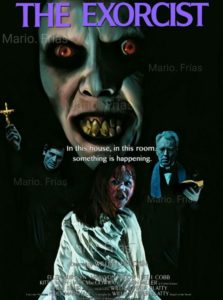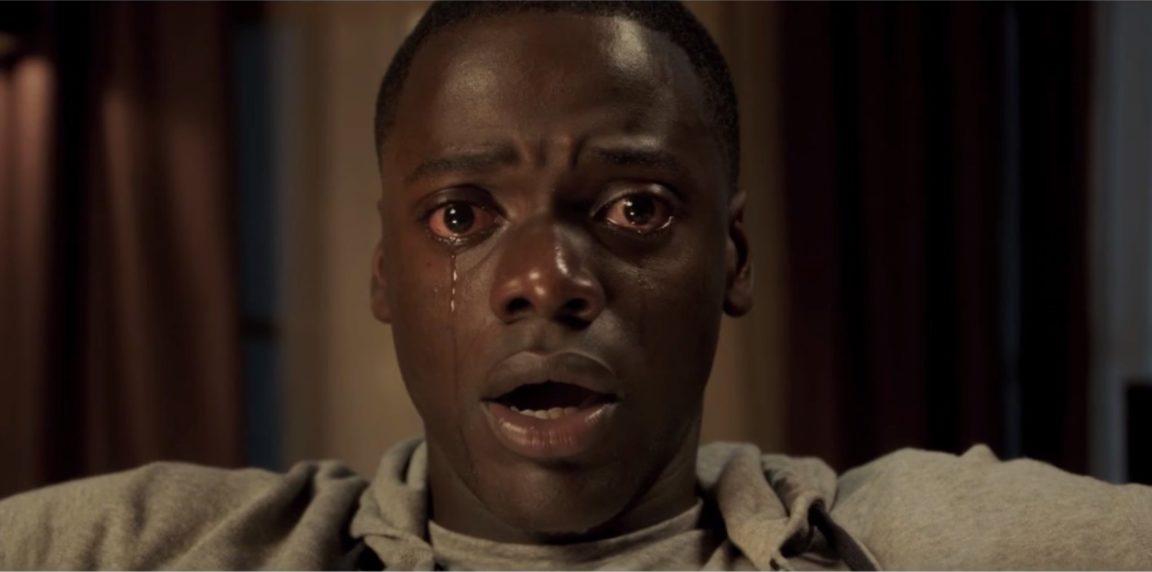We’re in a golden age of horror. Recent films such as Get Out, Stephen King’s IT, The Shape of Water, Hereditary, A Quiet Place, and Mother! and television shows such as The Exorcist, Hannibal, Supernatural, American Horror Story, Ash vs. The Evil Dead, and Twin Peaks: The Return have given horror fans a lot to look forward to both at the movie theater and on their televisions. While films Get Out and The Shape of Water have won Oscars in the past year, possibly signaling a new, more accepting age of horror films as Academy Award contenders, many horror-haters have tried to pass those movies off as “psychological dramas,” leading me to believe that many people aren’t ready for “horror” films to contend for major awards. That leads me to a simple question: should horror movies be accepted as major award contenders?
Why Aren’t They Currently Seriously Considered?
First, let’s tackle why they are not currently seriously considered.
This is a tricky question to tackle. Many moviegoers dislike horror movies, as they either don’t like to be scared, see the films as gore-filled and shocking just for the sake of being shocking, or write all horror movies off as “torture porn” (which is a horribly misguided generalization, but is one held by many). This makes it more difficult for horror films to gain the national and critical attention necessary to be real contenders for major awards. However, it is true that Get Out and The Shape of Water, two recent films that could fit into the horror category, did win Academy Awards last awards season. In my opinion, they are the exceptions that prove the rule: look at any comment board about them signaling a new, more respected age for horror, and you’ll see many commenters saying that the two films are not horror movies at all – they’re “too psychological,” or “not gory enough” to qualify as horror.

These comments show the stigma associated with horror: gory kills, unintelligent characters, and bad screenwriting that is incapable of being smart enough to be “psychological.” With this in mind, I believe the thought that Get Out and The Shape of Water‘s recent success at the Oscars means that the Academy is finally considering horror films for major awards is misguided.
(Disclaimer: I’m not a huge believer in The Shape of Water being a horror film – a monster film, yes, but that’s not necessarily a horror film in my book. Still, many horror writers, actors, and fans claim it as their own, so I’m not one to stop them).
Should Horror Movies Be Seriously Considered?
Now, let’s take a look at whether or not they should be seriously considered. Well, way back in the day – at the 1974 Oscars, to be exact – one of the best horror movies of all-time, The Exorcist, won two Oscars, and was nominated for eight more, including three acting nominations.

This was a huge win for horror as a whole, and The Exorcist legitimately deserves all the praise that is heaped onto it – the acting is phenomenal (especially Blair, who is so haunting as Regan that she caused some religious zealots to get very upset), it stands up as one of the scariest movies ever made even today, and it doesn’t heap gore on top of gore on top of gore in order to achieve its high level of scariness. However, The Exorcist failed to win any of the acting Oscar awards or Best Picture, taking home just Best Sound and Best Writing for a Screenplay Based on Material from Another Medium.
Should The Exorcist have won any of the acting awards? Maybe. Blair was great, but the demon was voiced by a different actress, Mercedes McCambridge, meaning that Blair wasn’t forced to provide this demonic voice – she probably shouldn’t have won. The performances by Ellen Burstyn as Regan’s distraught mother, and Jason Miller as one of the exorcists are phenomenal, but I’m not quite sure they are Oscar-worthy – much of their performances, while very impressive, are just them acting in disbelief of what is going on around them.
That leads to the question: if The Exorcist, one of the best horror films of all-time, didn’t deserve to win any major awards, how can any horror film expect to be in the running for Oscars?
Honestly, they probably shouldn’t expect to be in serious contention, but that doesn’t mean that they don’t deserve to be in the conversation. Recent horror films such as Stephen King’s IT feature scary performances by the villain, great cinematography, and good storylines/dialogue for the leads; horror is evolving from the gore and sex-filled, storyline-lacking films of the late 20th century, and the Oscars should reflect that evolution.

So, I guess what I’m getting at is that certain horror films – those richer psychologically and in character development – shouldn’t be hampered down by the lower-budgeted “torture porn,” or unnecessarily raunchy horror movies; horror should be a legitimate contender for major awards. Just like it’s unfair to classify all comedies as rich in humor, but lacking in plot, it’s also unfair to classify all horror as gore-filled, low-budget films that don’t attempt to have a coherent storyline or believable actors. Some horror films, such as the ones mentioned above, the international film Raw (which is probably the goriest, most vomit-inducing film I’ve ever seen, but also has one of the most engaging, interesting plots I’ve ever seen in horror), Silence of the Lambs (which is the only horror film to ever win Best Picture, and one of the few films to ever win the Big Five (Best Picture, Actor in a Leading Role, Actress in a Leading Role, Director, and Screenplay Based on Material Previously Produced), but is again a victim to many viewers calling it a “psychological drama” – not a horror film), and The Conjuring films, among many others, manage to buck this generalization, and provide viewers with thought-provoking, psychologically-rich horror films. These are the types of horror movies that should be represented at the Oscars.
It’s time to stop the hate on the horror genre. Like all genres, it has its share of terrible films, but it is unfair to hold this against all horror movies. It’s time for horror – the right horror – to be represented at film’s biggest stages.




